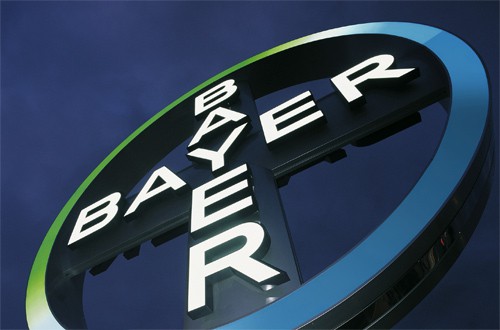
Bayer and partner Merck & Co have started the first phase III study of vericiguat, a first-in-class heart failure drug, despite mixed results in a mid-stage trial.
The first patient has been recruited in the VICTORIA trial of vericiguat, an oral soluble guanylate-cyclase (sGC) stimulator thought to work by correcting a dysfunctional nitric oxide signalling pathway seen in heart failure.
The large (and likely expensive) trial will enrol a total of around 4,900 patients with chronic heart failure with reduced ejection fraction (HFrEF) and compare vericiguat to placebo on top of standard treatment. It is due to generate results in 2020.
The primary efficacy measure in the trial is the time to first occurrence of the composite endpoint of cardiovascular mortality or hospitalisation for heart failure.
The decision to press ahead with vericiguat comes even though the drug produced a less-than-stellar performance in the phase II SOCRATES-REDUCED trial.
Given at a range of doses, the drug failed to achieve its primary objective of achieving a significant reduction in N-terminal pro-B-type natriuretic peptide (NT-proBNP) a biomarker in patients with worsening HFrEF, although a subgroup given the highest dose (10mg) did show a benefit compared to placebo.
According to the investigators in the trial, in HFrEF patients on 10mg vericiguat showed some improvements in left ventricular ejection fraction (LVEF) as well as fewer clinical events than the placebo group.
A second phase II trial of vericiguat in heart failure patients with preserved ejection fraction (HFpEF) – an even more hard-to-treat form of the disease – has yet to be announced even though the trial was completed last year. It is rumoured to have been discontinued in this indication.
Bayer – which holds all rights to the drug outside the US – has previously said it expects vericiguat to bring in approximately €500m ($558m) in peak annual sales. Analysts at Credit Suisse have predicted 2020 sales of around $58m, with a 40% chance the drug will reach the market.
Another new drug for HFrEF, Novartis’ Entresto (sacubitril and valsartan) – has been predicted to become a $5bn product but is off to a slow start with sales of just $49m in the first half of the year.
It is estimated that 1-2% of all adults in industrialised countries are affected by HF at the moment – and the incidence is predicted to rise sharply by 2030. It remains an invariably fatal condition however, with only half of patients still alive five years after diagnosis.




